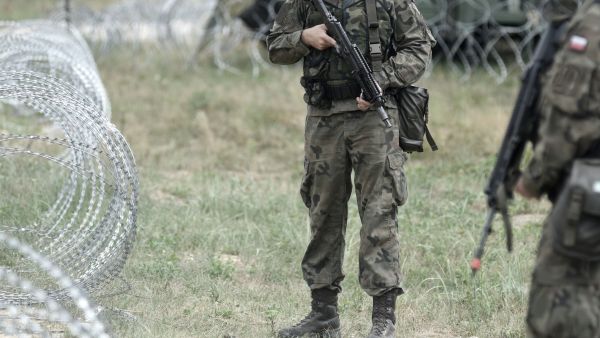ALBAWABA - Following a stabbing incident at the Polish-Belarus borders, which left a Polish soldier fighting for his life, Prime Minister Donald Tusk said that his country would be reinforcing its borders by introducing a buffer zone.
"It was recommended to us that we should quickly restore the 200-meter buffer zone in this area where possible... we are ready to take such a decision at the beginning of next week," Tusk told a press conference near the border.
Tusk announced that in addition to the 190-kilometer metal barrier now in place to stop a flood of migrants from Belarus, a 200-meter buffer zone will be established along the border, which also happens to be the eastern frontier of the European Union.
Following the knife attack on a soldier close to the village of Dubicze Cerkiewne, Tusk visited troops, border guards, and police units securing the border with the company of defense and interior ministers.
"There is no room for negotiation. Poland's border must be protected," Tusk said. "Polish troops, border guards, officers have become the targets of aggression and you have every right, not to say an obligation, to use every means available to you ... when you are defending not only the border but also you own life," Tusk said.
Tusk and Defence Minister Władysław Kosiniak-Kamysz said that additional police and military forces would be sent to the area.
According to officials, a migrant stabbed the soldier in the ribs as he reached over the bars of the more than five-meter-tall metal wall dividing Poland and Belarus.
The perpetrator was on the Belarus side of the barrier, making it impossible for Polish security officers to apprehend him, according to authorities.
According to Tusk, the government will give the final call on establishing the buffer zone during next week. Poland accuses Belarus and Russia of intentionally pressuring their diplomatic ties with Poland due to the surge in illegal immigration through the Polish-Belarus borders.







